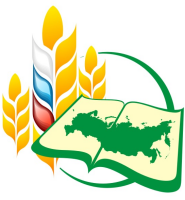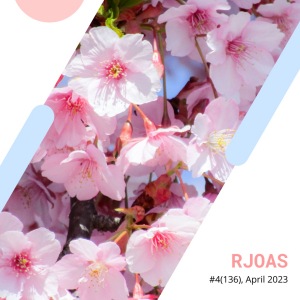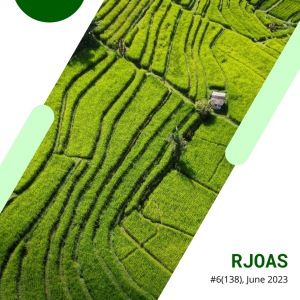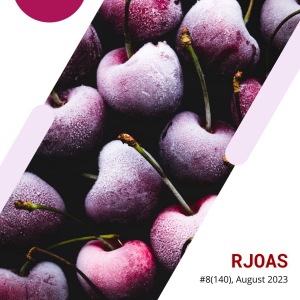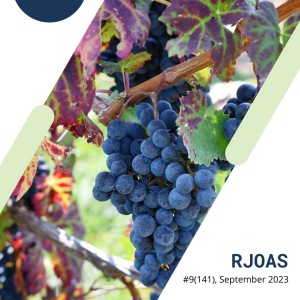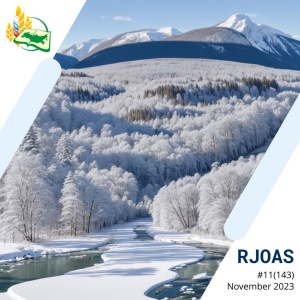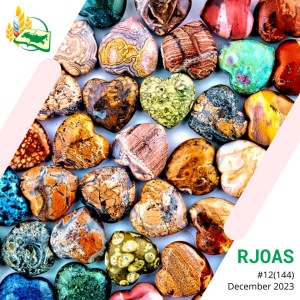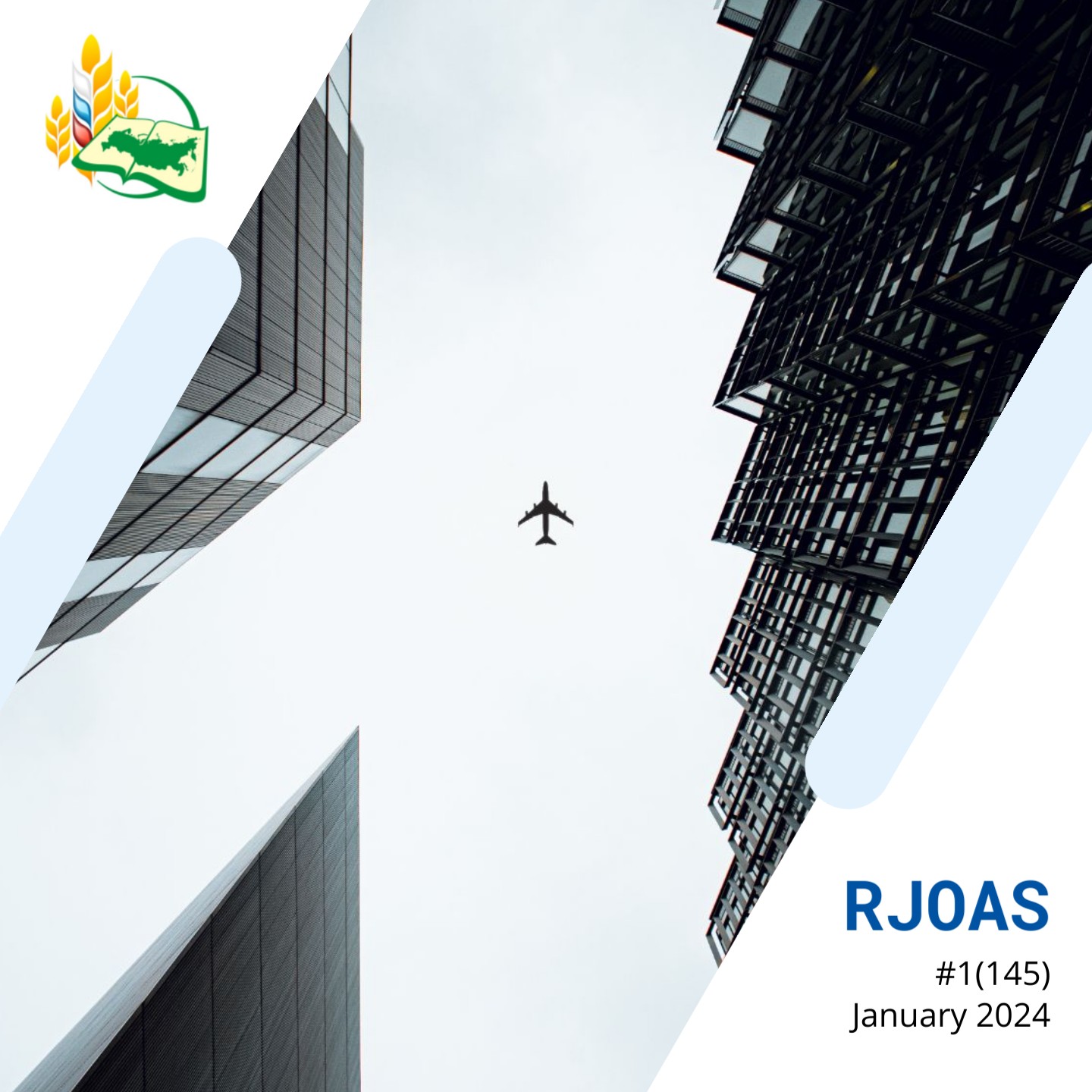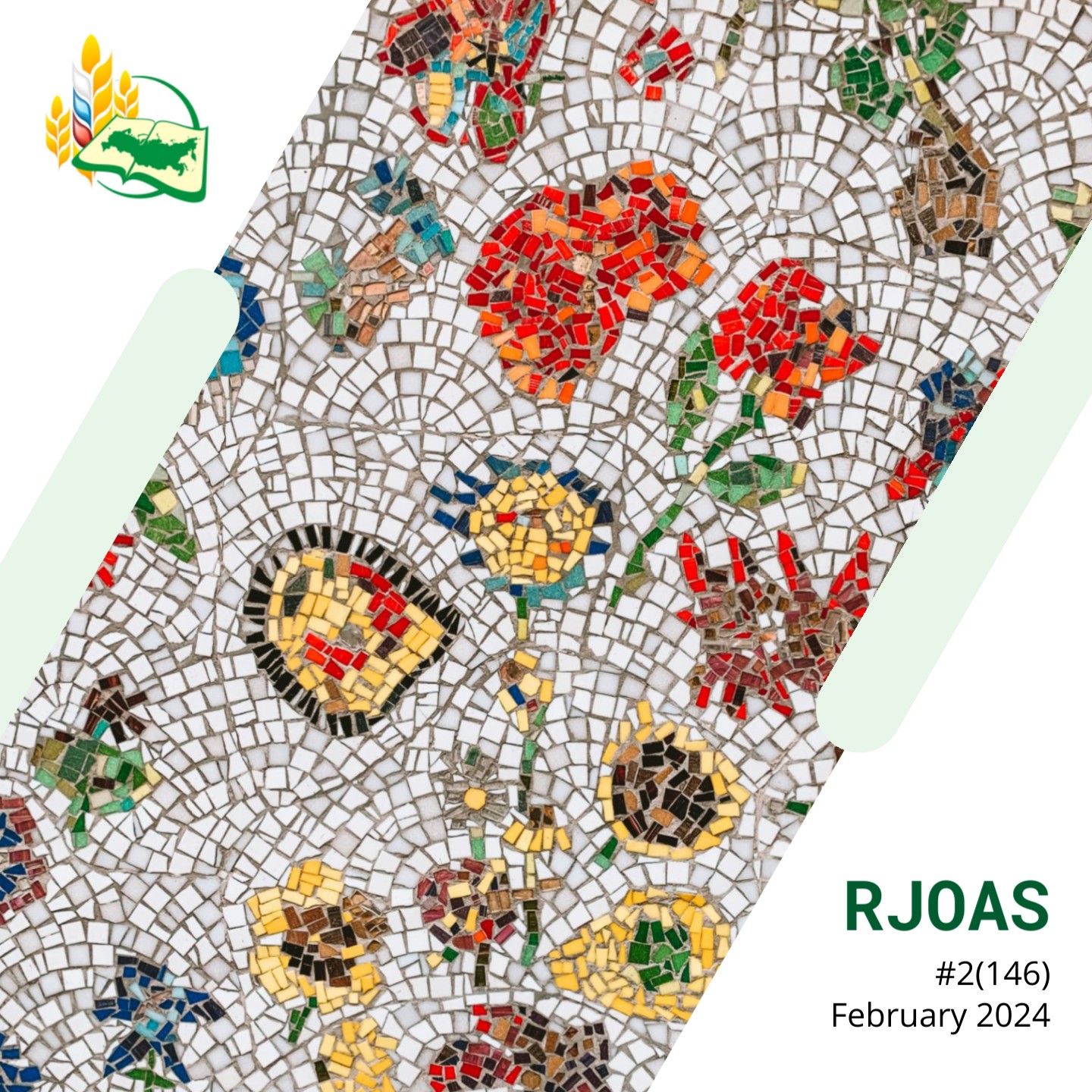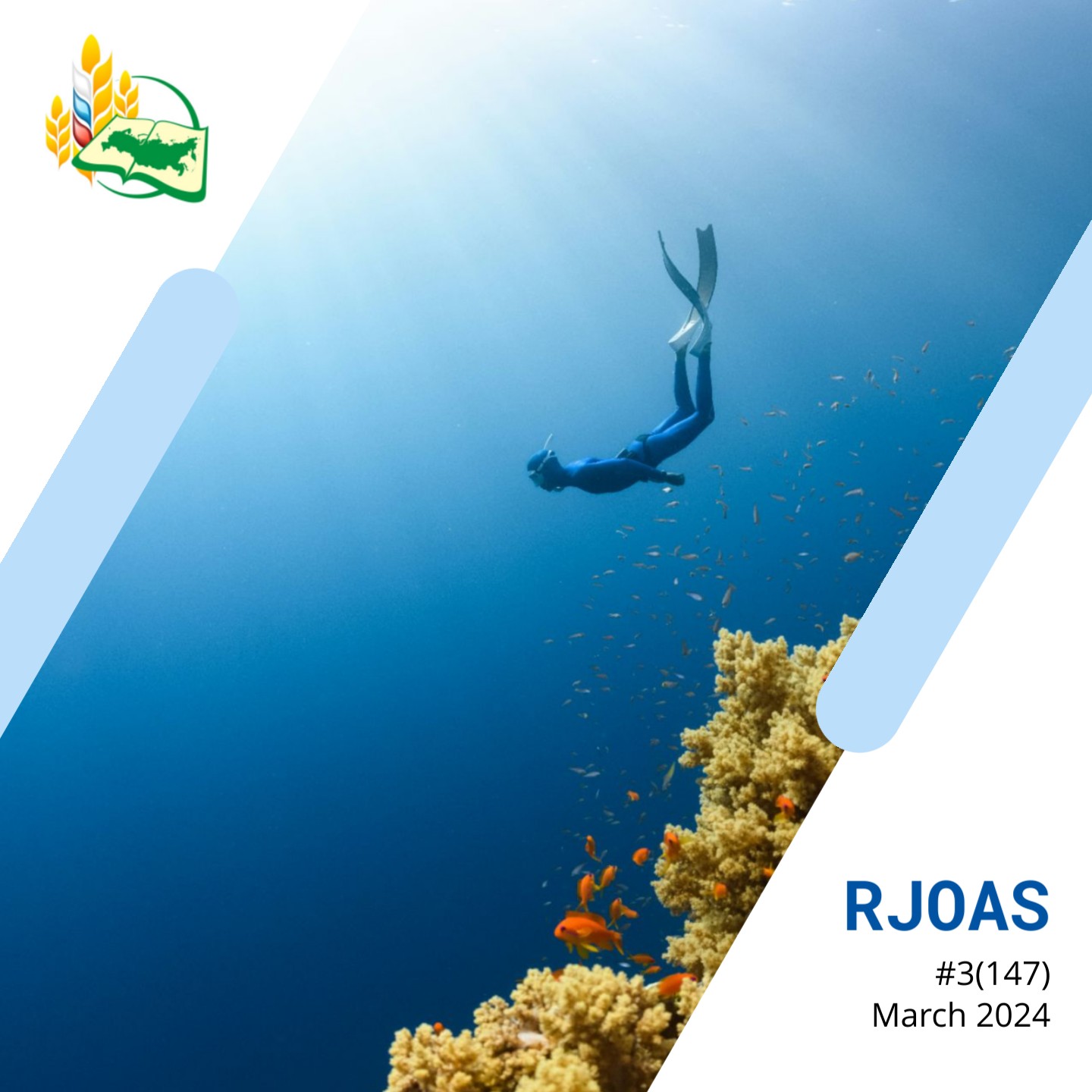ISSUE 2(38), February 2015 |
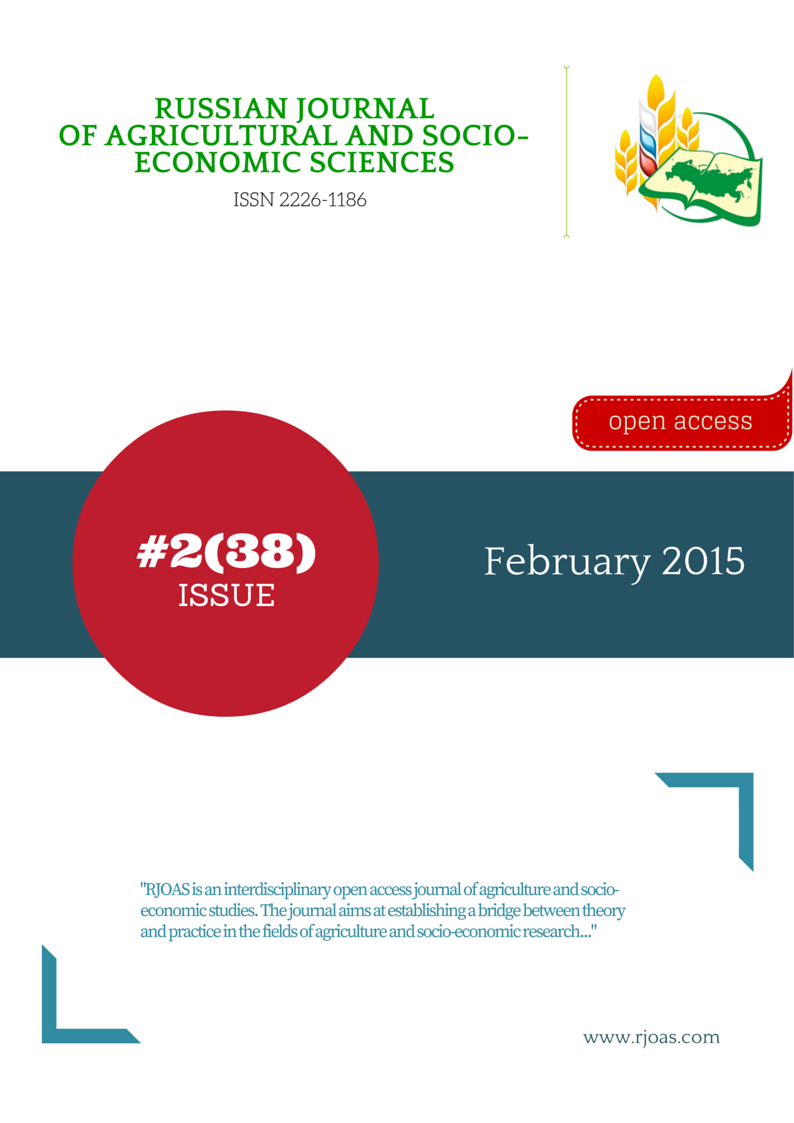
Pages 3-14
Title
SOCIOECONOMIC CHARACTERISTICS OF RURAL FARMERS AND PROBLEMS ASSOCIATED WITH THE USE OF INFORMAL INSURANCE MEASURES IN ODOGBOLU LOCAL GOVERNMENT AREA, OGUN STATE, NIGERIA
Author(s)
Ogunmefun S.O., Achike A.I.
Organization(s)
Department of Agricultural Economics, University of Nigeria, Nsukka, Enugu State, Nigeria
Key Words
Farming; Insurance; Community; Education
Abstract
This study analyzed the socioeconomic characteristics of rural farmers and problems associated with the use of informal insurance measures in Odogbolu Local Government Area of Ogun state, Nigeria. To give effect to the study, eighty farmers were randomly selected from the study area. A two-stage sampling procedure was used in the collection of primary data in Odogbolu LGA. The first stage involved a random selection of five (5) communities from amongst the communities in Odogbolu LGA of Ogun state. The second stage involved the selection of respondents/farmers from each of the communities using the same insurance practices from the already listed informal insurance practices with probability proportionate to the size of each farming communities selected. Data collected through structured questionnaires and interview schedules were analyzed using frequency distribution such as mean and percentage. Results showed all the measures used had factors that limited their effectiveness. Majority of the farmers (61%) identified their major problems with the use of informal insurance measures as entry constraints which was grouped into lack of credit, lack of credit facilities, Lack of working capital (assets like land) and lack of skills (education). Recommendation for this study is that farmers should be encouraged to invest more and increase their input in agriculture as to improve their output/revenue. Also, the government should give concessions to the rural farmers in various aspects which include provision of credit facilities, provision of infrastructures and inputs for rural farmers to enable them perform most of the informal insurance measures.
CrossRef DOI
Pages 15-19
Title
NITRIFICATION DYNAMICS IN SOIL DUE TO VARIATION IN CO2 LEVEL
Author(s)
Haroon Shahzad, Muhammad Iqbal, Atif Javed, Sarvet Jehan
Organization(s)
Institute of Soil & Environmental Sciences, University of Agriculture, Faisalabad, Pakistan
Key Words
Incubation; CO2 absorber; KOH; Nitrification
Abstract
Nitrification process in the soil is oxidation reaction that occurs in aerobic environment. Under anaerobic environment reduced conditions prevails inhibiting nitrification process. A lab incubation study was designed to assess the effect of CO2 level on nitrification in soil. Soil samples were taken in container and incubated for two weeks under conditions, (i) 0, 1 and 2% ground farm manure mixed with soil and (ii) with and without KOH solution to trap CO2. Each of the treatment was replicated 12 times. Three soil samples were discarded after analysis for NH4 and NO3-N after 0, 5, 10 and 15 days of incubation showing significant decrease in nitrification rate with decreased CO2 level. Organic matter added in the form of farm manure enhanced nitrification rate especially in KOH treated container.
CrossRef DOI
Pages 20-30
Title
PARTICIPATION IN CONTRACT FISHING IN A DEVELOPING ECONOMY: A QUALITATIVE RESPONSE MODEL ANALYSIS
Author(s)
Namso N. Frank*, Gabriel S. Umoh**
Organization(s)
*Akwa Ibom Agric. Devt. Programme, Uyo, Nigeria
**Dept. of Agricultural Economics & Extension, University of Uyo, Uyo, Nigeria
Key Words
Fishing; Social group; Production; Credits
Abstract
Many fishermen in developing countries are resource poor and rely on a number of avenues to obtain production inputs. One of such ways is contract. This study examined determinants of contract fishing participation in Akwa Ibom State, Nigeria. Data were collected from 91 contracted artisanal fishers for analysis. Multinomial logit model was used to examine the determinants of their participation in contract fishing. Results show that participation in contract fishing was determined by the level of education, household size, number of productive assets; income, extension contact and group membership. However, age, years of fishing experience and credits were found to have negative effects on participation.
CrossRef DOI
Pages 31-40
Title
INFORMATION BASE FOR DECISION-MAKING AT THE MICRO AND MACRO LEVELS IN AGRICULTURE
Author(s)
Aleksandra Figurek
Organization(s)
Faculty of Agriculture, University of Banja Luka, Republic of Srpska, Bosna and Herzegovina
Key Words
Farms; Production and financial data; Integration; Institutions
Abstract
Agricultural activity takes place in a dynamic environment, which is under daily change. It is faced with changes in technology, prices, climate and institutional framework. These changes make an impact on the realization of agricultural production activities, of which depend the results on operations of farmers. One of the basic measures that can help in coping with these changes is to improve agricultural production through the continuous recording of transactions generated on farms. Due to the presence of variable conditions in production, which are often unpredictable and can not be significantly affected by them, it is necessary the each activity in agriculture carefully to plan, to organize and direct toward its goals. In te paper was used the system approach and methods of system analysis. System analysis provided the ability to compose the adequate system in agricultural sector, which offer important informations for farmers. Integration of existing databases relating to this sector at the micro and macro level, on the one hand and data regarding the production capacity and operations of agricultural producers on the other, are one of the measures that may have influence on the adjustment of agricultural policy and the creation of measures which will result in achieving the expected effects. The existence of this information base, which is in addition to the aforementioned sources, based on data relating to the economic indicators about agricultural holdings, is essential for the agricultural sector.
CrossRef DOI
Pages 41-55
Title
AN ANALYSIS OF SMALLHOLDER FARMERS’ SOCIO-ECONOMIC DETERMINANTS FOR INPUTS USE: A CASE OF MAJOR RICE PRODUCING REGIONS IN TANZANIA
Author(s)
Nobeji S. Boniphace*, Nie Fengying*, Fang Chen**
Organization(s)
*Institute of Agricultural Information, Chinese Academy of Agricultural Sciences,Haidian District Beijing, PRC
**FAO, Rome, Italy
Key Words
Agricultural inputs; Smallholder farmers; Probit model; Tanzania
Abstract
This study analyzed smallholder farmers’ socio-economic determinants for inputs use in major rice producing regions in Tanzania. A sample for the study comprised of 842 rice farming households from five major paddy (rice) producing regions of Mbeya, Morogoro, Shinyanga, Mwanza and Tabora. These sample households were drawn from FAO database extracted from the Tanzania National Panel Survey (2010-2011). Household socioeconomic and farm production information were extracted from the database. Descriptive analyses were used to summarize the collected information. Probit model was used to assess determinants of input use among the farming households. The study found that the probability of using agricultural inputs increase with education level, quantity of crops produced, livestock, farm income while it decrease with total number of livestock and nonfarm income owned by a household. The study also found difference in input use preferences among regions; in Mbeya more use in maize while in Shinyanga more input use in rice. Based on these findings, our study concluded that in order to raise the use of agricultural fertilizer among smallholder farmers, policy makers and development agencies should put more efforts on developing and implementing sustainable strategies such as improving market infrastructure that lead to improved access to input and output markets thereby improving farmers’ incomes. Price policies are also important to increase and stabilize farmers’ incomes and incentivize use of and investment in improved agricultural technologies such as improved agricultural inputs, seeds and post-harvest management techniques.
CrossRef DOI













